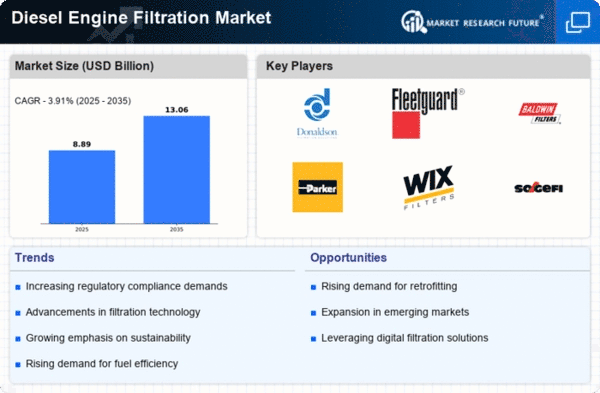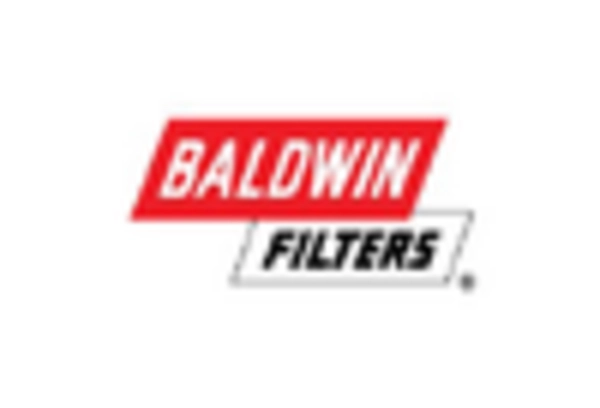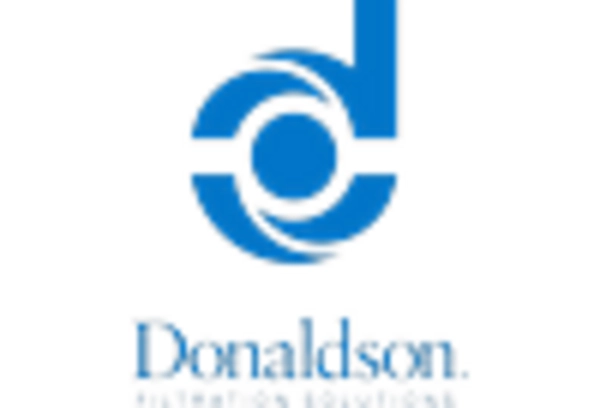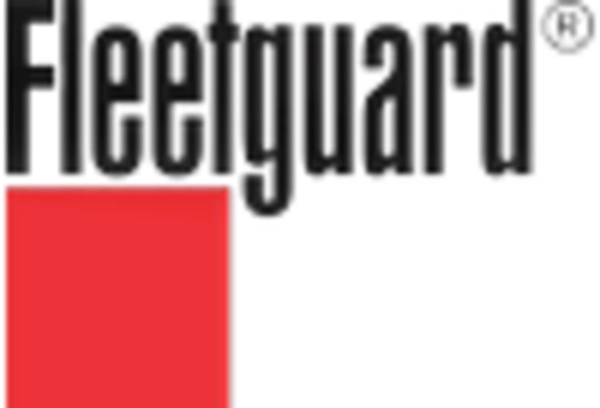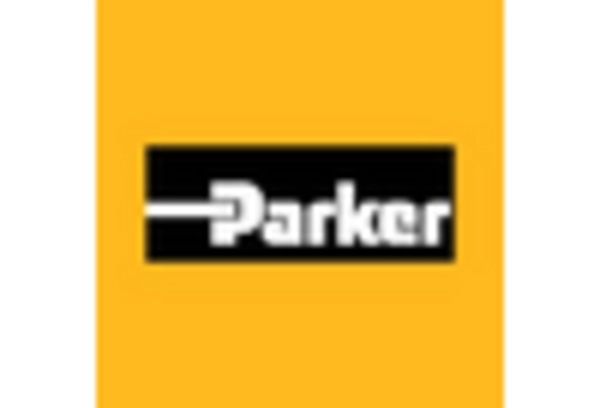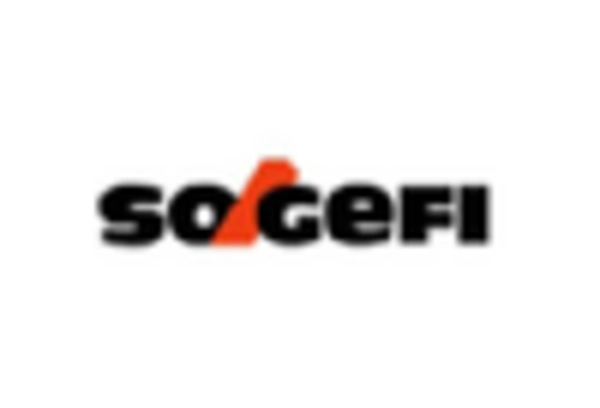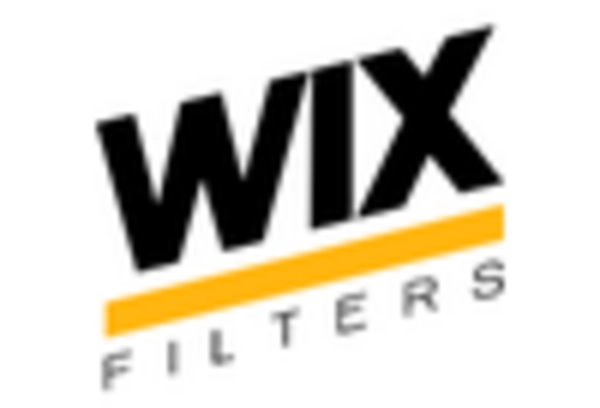Market Growth Projections
The Global Diesel Engine Filtration Market Industry is projected to experience a compound annual growth rate (CAGR) of 4.37% from 2025 to 2035. This growth is indicative of the increasing investments in diesel engine technology and filtration solutions across various sectors. The market is expected to evolve in response to changing consumer preferences and regulatory requirements, with a focus on enhancing engine efficiency and reducing emissions. As the industry adapts to these dynamics, the market is likely to witness the emergence of innovative filtration products that cater to the evolving needs of diesel engine users.
Increasing Demand for Diesel Engines
The Global Diesel Engine Filtration Market Industry is experiencing a notable surge in demand for diesel engines, primarily driven by their efficiency and reliability in various applications, including transportation and industrial sectors. In 2024, the market is projected to reach 25 USD Billion, reflecting a growing preference for diesel-powered vehicles due to their superior fuel economy compared to gasoline counterparts. This trend is particularly evident in regions with robust logistics and transportation networks, where diesel engines are favored for their longevity and performance. As the demand for diesel engines rises, so does the necessity for advanced filtration solutions to enhance engine performance and reduce emissions.
Technological Advancements in Filtration Systems
The Global Diesel Engine Filtration Market Industry is witnessing rapid technological advancements that enhance the efficiency and effectiveness of filtration systems. Innovations such as nanotechnology and advanced materials are being integrated into filtration products, resulting in improved performance and longer service life. These advancements enable diesel engines to operate more efficiently, thereby reducing maintenance costs and downtime for operators. As the market evolves, manufacturers are increasingly focusing on developing smart filtration solutions that can monitor performance in real-time. This trend not only boosts the market's growth potential but also aligns with the industry's shift towards more sustainable and efficient engine technologies.
Regulatory Compliance and Environmental Standards
The Global Diesel Engine Filtration Market Industry is significantly influenced by stringent regulatory frameworks aimed at reducing emissions and improving air quality. Governments worldwide are implementing increasingly rigorous standards for diesel engines, necessitating advanced filtration technologies to comply with these regulations. For instance, the introduction of Euro 6 standards in Europe has compelled manufacturers to adopt high-efficiency filtration systems to meet the required emission limits. This regulatory landscape not only drives innovation in filtration technologies but also expands the market as companies invest in compliance solutions. The ongoing evolution of environmental policies is likely to sustain growth in the filtration market as industries adapt to meet these challenges.
Growth of the Automotive and Transportation Sector
The Global Diesel Engine Filtration Market Industry is closely tied to the growth of the automotive and transportation sectors, which are experiencing robust expansion globally. As urbanization and population growth continue to drive demand for transportation services, diesel engines remain a preferred choice for commercial vehicles due to their durability and fuel efficiency. The market is expected to grow to 40 USD Billion by 2035, reflecting the increasing reliance on diesel-powered vehicles for freight and logistics. This growth trajectory underscores the need for effective filtration solutions to maintain engine performance and comply with environmental standards, thereby propelling the filtration market forward.
Rising Awareness of Maintenance and Engine Longevity
The Global Diesel Engine Filtration Market Industry is benefiting from a growing awareness among consumers and businesses regarding the importance of regular maintenance and the role of filtration systems in extending engine life. Operators are increasingly recognizing that high-quality filtration can prevent costly repairs and downtime, leading to a greater emphasis on investing in superior filtration products. This trend is particularly pronounced in sectors such as agriculture and construction, where equipment reliability is critical. As awareness continues to rise, the demand for advanced filtration solutions is likely to increase, further driving growth in the diesel engine filtration market.


